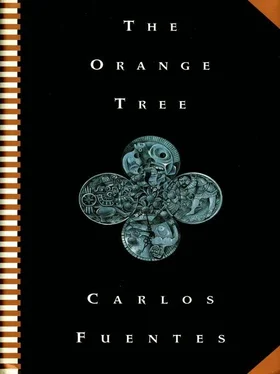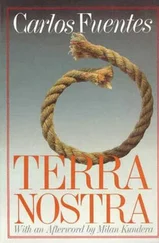And New Carthage does fall. In a day. Just four days after Cornelius Scipio reaches Spain. He captures provisions, entire arsenals, ivory, gold, and silver (which the Spaniards disdain and the Carthaginians adore). Money, wheat, and docks with thirty-three warships. Prisoners. Hostages.
The young Scipio frees the prisoners in order to reconcile the two peoples. He wears a saintly expression. He does it very well. He does everything well, but this inspired expression is the one that works best. He dominates our splendid rhetoric, the double source of our politics and our literature. From the walls of New Carthage, he exclaims, “Do not forget the Scipios!”
He consecrates himself. He consecrates, by prolonging it, the glory of the family line. And by doing that he consecrates Rome, her law, her arms, her Senate, and her people. He is the worthy son of the sacrificed Publius Cornelius. Who could reproach him for his triumph? Outside the walls of Carmona, the young general acts as if he were in an amphitheater. He wears his best expression of inspiration. He says he’s waiting for a divine sign to attack. As if Jupiter himself were directing, a flock of blackbirds passes at that instant, spins into a circle, and screeches. Cornelius imitates the birds, running around in circles, making noises. The whole army imitates him, amid astonishment and laughter. The passion of victory inspires them.
But from the rear, a great number of Africans advance. Discourses and inspirations are just not enough. The birds, like all actors, have moved on to the next town. Cornelius dismounts, hands his horse over to a boy, takes a shield from a soldier, runs alone into the open space between the two armies, and exclaims, “Romans, save your general in danger!”
Moved by a thirst for glory, or fear or shame, we rush to rescue our commander from a danger he himself invented. Eight hundred of us die at Carmona — along with fifteen thousand Carthaginians. Victory would have been unimaginable if our general, acting on his own, hadn’t exposed himself unnecessarily to death …
Cornelius Scipio is a favored man; he has youth and beauty, inspiration and courage, a theatrical gift, rhetorical power, and the ear of the gods. But every hero has his Achilles’ heel. Linked by the neck of the Pyrenees to the continent, Spain, as we’ve noted, would be an island without those mountains. But that throat is vulnerable, as was that of our hero Cornelius Scipio in his next battle, against the Ilurgians, our allies, who went over to the Carthaginians. Cornelius conquered their town in four hours but was wounded in the neck, the only exposed place between his trunk and head: helmet, breastplate, shield, and short sword transformed our commander into a metal beast. But he had an Achilles’ neck.
Wounded by their leader’s wound, our men forgot to sack the town and instead, without being ordered to do so, slit the throats of all its inhabitants. The blood of Ilurgia flowed out of the slashed throats of its men, women, and children.
When Cornelius fell ill, Marcius took his place. He was weak and could not control our men. Deprived of the fascination our young hero provided, they drifted into an indiscipline which they would never dare to exhibit, which they perhaps repressed, when Cornelius Scipio stood before them. The hero would not have wanted to do what he then had to do, namely, to abandon his sickbed to restore order among the unruly troops. First came whipping. Then they were skewered to the ground through the neck and decapitated. All that made Cornelius ill. He lived just one moment beyond the glory allotted him. He knew it and withdrew. Cornelius Scipio dominated the rhythm of time. He measured his own, and four years later, at Zama, he defeated Hannibal and Carthage forever and was granted the glorious title of Scipio Africanus. That was the grandfather of the Scipio who besieged and destroyed Numantia.
The hero Cornelius Scipio and the weak Marcius were replaced by the young Cato. He wanted to emulate the hero and began with a dramatic gesture. He ordered the fleet back to Rome and announced to the soldiers that they should fear the absence of ships more than they feared the enemy: there was no way to return to Italy.
The audacity of Cato the Younger, who inspired his troops more with fear than with hope, succeeded in having all the cities along the Ebro River pull down their walls rather than be sold into slavery. Even so, the triumphs of Cornelius Scipio and Cato were demolished by the blind infamy of Galba in his so-called Lusitanian War. The trick of this commander of ours, lacking all honor, was to befriend the Iberian peoples, propose peace treaties, tell them he understood the reasons for their rebellion — the result of the poverty in which they lived — and promise them fertile lands if they would yield. Alter they did so, he would assemble them in an open place where he could divide them into groups and then kill every single one of them.
A rebel named Viriatus escaped from one of those contemptible ambushes. During eight years of fighting, he kept us in check. He set up his headquarters in a freshly planted olive grove called the Mount of Venus. He defeated our commanders, beginning with Vitellius. Accustomed to the elegance and beauty of the Scipios, no one recognized their successor in that old, fat man. Because they did not recognize him, the Spaniards killed him, Plautius, who followed Vitellius, fled Spain in complete disorder. Right in the middle of summer, he declared, “It’s winter,” and ran away to hide. But since the seasons were not subject to his commands, Viriatus paid him no attention and occupied the entire country.
At first, his guerrilla tactics, now familiar to all, disconcerted our generals. Used to formal warfare, face-to-face, cohorts lined up, and limiting feinting movements to the logical pattern of flanks, vanguard, and rearguard, we were, at the outset, slow to understand the style of the guerrilla fighter. He would attack by day or night, whether it was hot or cold, whether it was raining or whether the earth was dying of thirst. Sun and darkness were equally useful to him. His troops were lightly armed, his horses swift while ours were slow and weighed down by heavy armor. He was invincible, so we offered Viriatus a generous peace. Fabius Maximus Servilianus declared him our friend, promising land and peace to his followers. But Caepius, the next commander in chief, decided those agreements were unworthy of Rome and Rome’s greatness. He started the war again, and one night managed to introduce our spies into Viriatus’s camp. The Spanish leader slept fully armed, always ready for combat. The murderers plunged a dagger into the only unprotected spot on his body: his neck. When he was found the next morning, his people thought their chief was still sleeping. But this time Viriatus was only a fully armed corpse.
That’s how we conquered rebellious Spain: we killed her leaders and prepared to conquer the last focus of resistance: the tenacious, stubborn, and, for all that, terrible capital of Celtiberia, the proud city of Numantia.
* * *
HE knows very well what’s going on in Spain. But above all, he knows what’s going on in Rome. I don’t know if you’ve taken the trouble to count the number of troops sent over the course of a century to fight in Spain. Between infantry and cavalry, beginning with the command of the two Scipios and ending with that of Fabius Maximus Servilianus, it comes to ninety-three thousand soldiers. A thousand per year. Few ever came back. He knows that. He feels that. He feels and knows Rome’s disquiet over the interminable Spanish war: a whole century, enough is enough … But the troops keep pouring in. The terrible thing is that now they’re fighting a single city, and that one city is eating up as many thousands of soldiers as the entire peninsula once did.
Читать дальше












